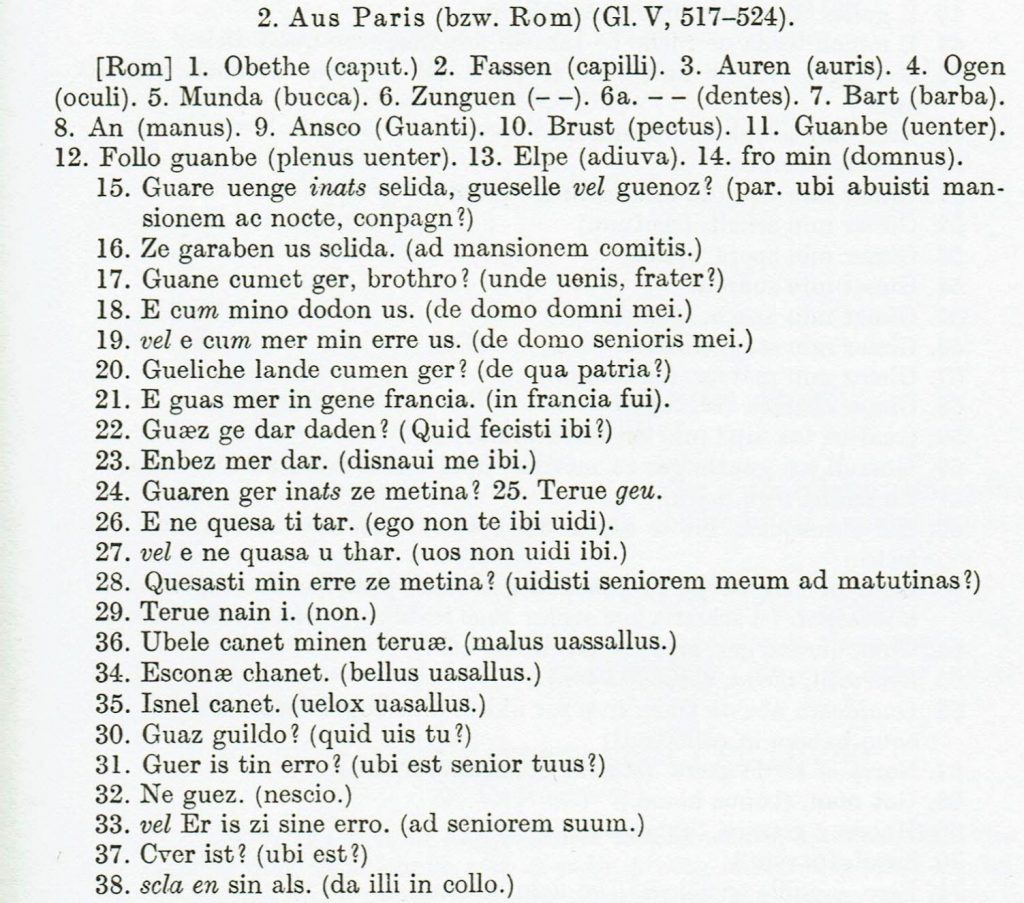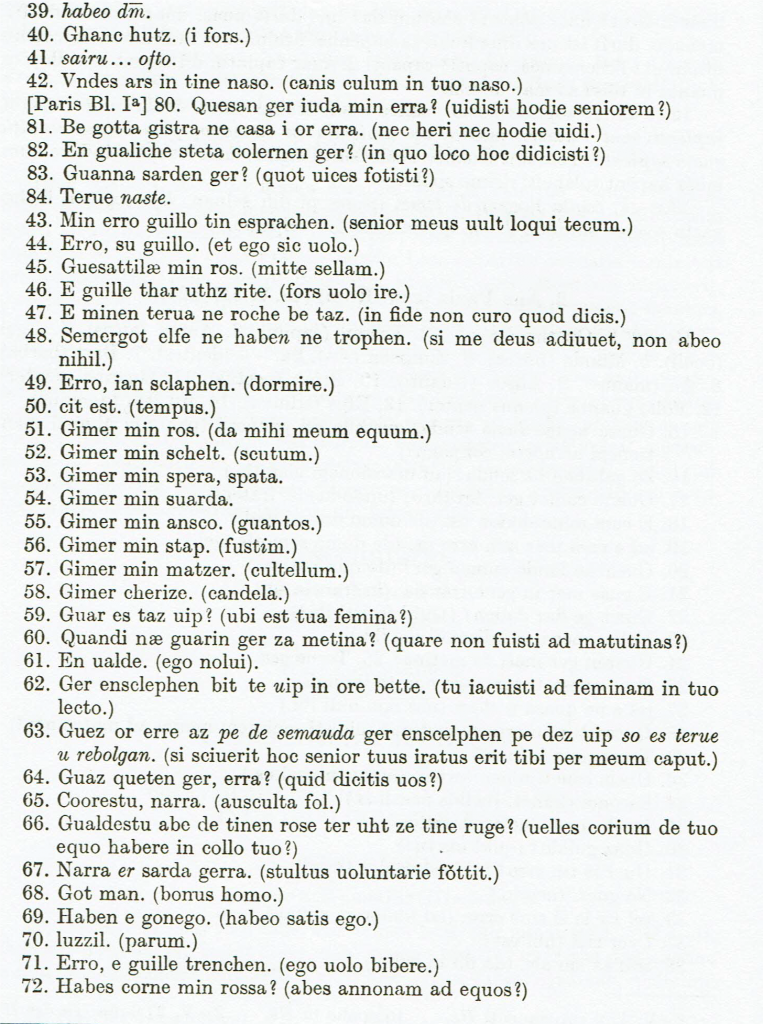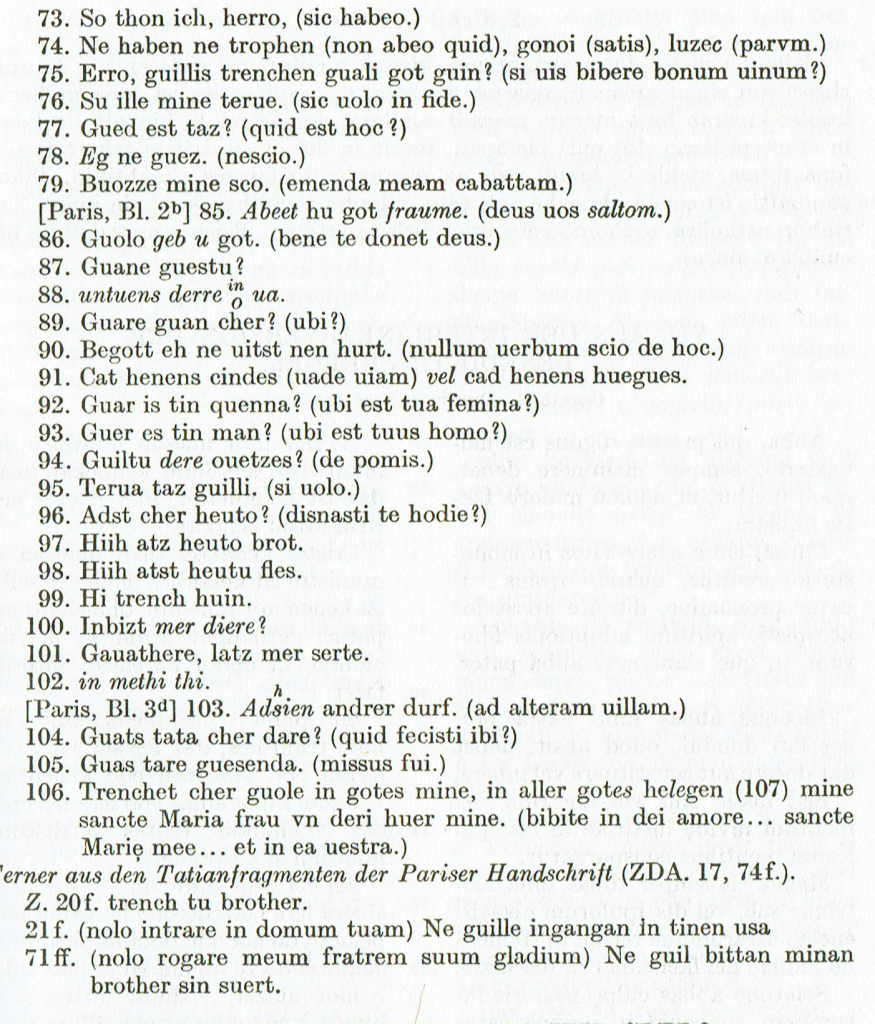Long before Berlitz, Lonely Planet and Let’s Go – long even before Baedeker – there was this handy German phrasebook for travelers from Francia, with the German translated into Vulgar Latin:



I can show you all this thanks to Wilhelm Braune’s Althochdeutsches Lesebuch, which is in the public domain.
You might think this doesn’t look like German. Well, it was a very long time ago. It’s hard to think of anything that looks the same now as it did in the tenth century.
But take a close look and sound it out – you’ll see it’s German. It starts with a list of body parts, moves on to some polite questions like “Where did you find a place for the night, friend?” (15) “What country do you come from?” (20) “What did you do there?” (22), then veers into more dangerous territory with “Hit him in the neck” (38), “Go out” (40), and “Dog’s ass in your nose!” (42). Then the accusations start flying: “Why did you not come to matins?” (60) “You lay down with a woman in your bed” (62) “Upon my head, if your lord knew you were sleeping with the woman he would be truly angry at you.” (63) A trip to tenth-century Germany can go south pretty quickly.
Wow, that’s fascinating. I wonder who made this glossary and why.
Meanwhile, in a similar vein, here’s the German folk-rock band Ougenweide performing the Merseburg Charms:
https://www.youtube.com/watch?v=emQDgoKOxog
Those are also in Braune’s compendium! The spells are one of the fun parts of this book. Maybe I’ll do a post about them someday.
They are also analyzed in Calvert Watkins’ “How to Kill a Dragon,” a book I wrote about here:
https://swspires.weebly.com/blog/a-lucrative-profession
Just noted with interest that the word for woman (No. 92) is “quenna,” which looks like the Norwegian “kvinne.” I wonder where “Frau” came from?
Frau is “lady,” i.e. a high-status woman. The male equivalent was “fro” as in “Fronleichnam” (the feast of Corpus Christi). Wip or uip was a neutral word for a woman and now, as “Weib”, it’s mostly pejorative. The glossary in Braune’s Lesebuch says “quenna” is specifically “wife.”